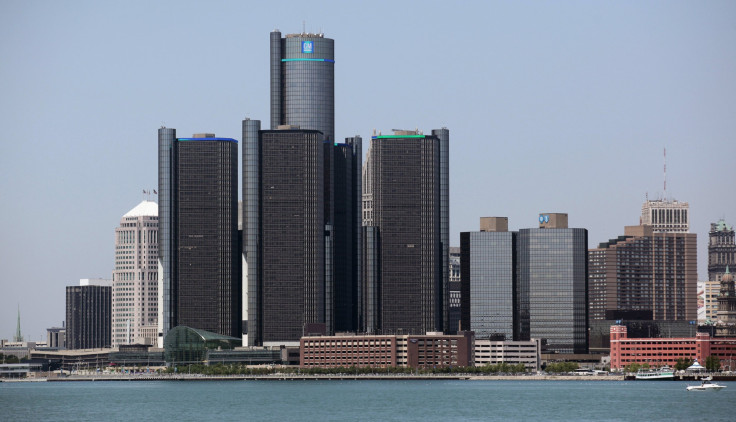U.S. Auto Sales Are Booming, So Why Can’t General Motors (GM) Pay The Money It Owes The U.S. Taxpayer?

General Motors Co. (NYSE:GM) and its rivals reported impressive car sales growth this week, and while North America's largest automaker might be feeling a little cocky about its 22 percent rise in retail auto sales last month, and its billions in annual profits, American taxpayers might be feeling it's fair to ask, “Where’s our money”?
U.S. consumers bought 1.5 million cars in August, pushing the annualized seasonally adjusted rate to 16 million for the first time since the Great Recession, which tipped two of the Detroit Three into bankruptcy and a government rescue.
While Chrysler LLC paid off its debts to Uncle Sam in 2011, GM is still in the red to the taxpayer by $16.4 billion, according to the latest Department of Treasury report on the $700 billion Troubled Asset Relief Program, the massive bailout package that transferred taxpayer money to the private sector to save hundreds of companies, mostly banks, in the wake of the subprime mortgage meltdown.
And despite earning billions in profits in recent years, GM is paying back the money it owes America through the U.S. Treasury sales of its stock. But that process is about to come to an end, and the only way GM would be able fully reimburse taxpayers through Treasury stock sales alone would be for GM executives to cast a magic spell that makes its stock price more than double in a matter of months.
GM is the biggest car company in North America and consistently No. 1 in sales volume. It saw retail sales jump 22 percent last month as consumers continued to snap up its popular Silverado pickup, its line of GMC large SUVs, and some of the best sedans and compacts the company has ever made.
The news has caused GM’s stock to rise more than 7 percent since Wednesday, to $36.52 in midday trading on Thursday, leaving the company’s share price pretty much where it was when GM returned to the stock market in November 2010.
But while traders are buying and selling shares and eagerly awaiting GM’s return to paying common stock dividends (no plans for that yet, GM says, but it does pay a dividend on preferred stock), the U.S. taxpayer is standing by, wondering when their government will get out of the car business.
GM will not be able to pay back America through the sale of the remaining 187 million GM shares held by the U.S. Treasury. Even if the government sold all its GM shares today, it would still leave the taxpayer owed at least $9 billion. For the Treasury to fully recover its investment (not to mention perhaps some profit on the lending), GM’s share price would have to top $85. The estimates vary because the sales are ongoing and are based on the price of the stock at the time of each sale.
In July, the U.S. government sold nearly $877 million worth of GM shares as part of its ongoing exit from the car business. So the U.S. taxpayer is still owed $16.4 billion of the $51 billion the government lent to stabilize and restructure the company.
Meanwhile, GM’s operating profit has averaged $7.9 billion a year between 2010 and 2012, or between $3.10 and $3.89 per share. It earned $1.5 billion in profit in the second quarter and estimates put profits this year at more than $8 billion, according to analysts polled by Thomson Reuters.
Some of that profit will eventually have to go toward paying the balance due after the government sells its last shares. But that poses a problem for GM, because, like any other massive corporation, GM needs a healthy balance sheet. The company has about $19.7 billion in cash and equivalents. If cash falls too low, GM’s cost of borrowing rises, and its access to cash for future investments is diminished, forcing it to rely on more borrowing.
The best outcome would look like this: The Treasury recovers as much as possible over the next six months and then GM sets up a repayment plan for the difference that balances its interests with those of Wall Street and the American taxpayer. The worst? The government takes a multibillion-dollar loss for rescuing GM.
© Copyright IBTimes 2024. All rights reserved.






















